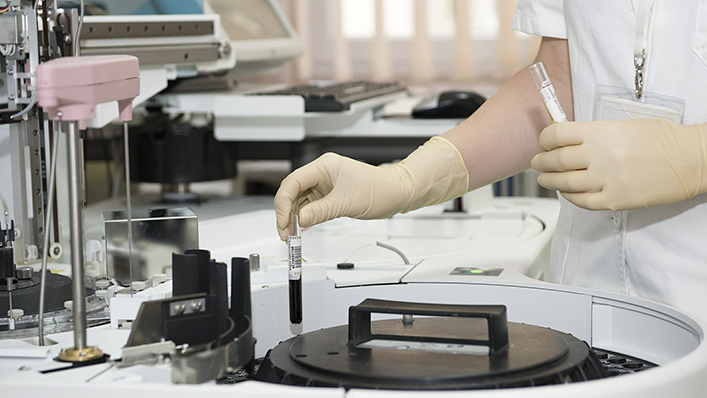Moving towards a WTO deal on COVID-19 vaccines?
Aligning the interests and priorities of 164 governments to reach agreement at the World Trade Organization (WTO) is no easy feat. The challenge is even greater when the topic is as contentious as the role of intellectual property rights protection in the extraordinary circumstances of COVID-19. But this is exactly what WTO members are trying to do, building on the outcome document that recently emerged from an informal process conducted by the WTO Director-General Dr. Ngozi Okonjo-Iweala with the European Union, India, South Africa and the United States (“the Quad”). This document would reinforce and streamline the scope for governments to limit patent rights to support the geographic diversification of production capacity of vaccines to fight COVID-19. Many WTO members are keen to integrate this intellectual property dimension into a trade and health package to provide for a holistic response to the pandemic, which in turn would be part of a set of results planned for the WTO 12th Ministerial Conference in mid-June. If successful, the deal could support greater vaccine equity. It would also confirm that the multilateral trading system can deliver on pressing global challenges.

The discussion process, while difficult and protracted, focused on designing a concrete, problem-solving response to address specific obstacles that governments had identified since India and South Africa tabled their proposal for a broad waiver of treaty obligations in October 2020. In adopting this pragmatic approach, the conversations also moved away from the European Union’s initial, more technical emphasis. No single point of view dominated the conversations. Members worked in good faith to come together towards what could be a meaningful proposal, without prejudice to their respective positions, that could be built upon by the rest of the WTO membership.
At its core, the outcome document would confirm the right of developing country governments to issue executive decrees, emergency orders and other legal instruments, in addition to conventional compulsory licenses, to authorize a company to use the patents underlying the COVID-19 vaccines without the consent of the patent right holder, subject to a delicate balance of flexibilities and clarifications crafted within the general equitable principles set out in the framework of the WTO Agreement on Trade-Related Aspects of Intellectual Property Rights (TRIPS). Vaccines produced under these conditions may be exported, not only used to service domestic markets, and adequate remuneration to the patent right holder may take into consideration the humanitarian and not-for-profit purposes of these programs to support manufacturers to produce and supply vaccines at affordable prices. WHO guidelines also provide a helpful reference, given the lack of domestic experience in many countries. In addition, protection of clinical trial data would not prevent a government from effectively implementing these flexibilities. These provisions are to be applied for a period to be determined of between 3 to 5 years, and any measure taken in conformity with them would not be subject to the WTO’s dispute settlement mechanism. Six months from now, WTO members would decide whether to extend this treatment to COVID-19-related therapeutics and diagnostics.
Generally, the outcome document has been welcomed as an accepted basis for negotiation among the broader WTO membership. This is an important step forward, particularly in light of the lack of progress that hampered discussions for the past 18 months. But a deal is not yet done. While delegations consult with their capitals, initial reactions have focused on certain issues, mostly already reflected in brackets in the document. First, China, a major vaccine manufacturer, has said it would not make use of the flexibilities that are finally agreed upon. The point under discussion now is how to properly reflect this major announcement in the text. Second, as there is no intention to inadvertently establish requirements beyond those of the TRIPS agreement for members using the flexibilities of the outcome, further deliberation is needed to keep or delete paragraph 3.a) of the outcome text, on single authorization and listing of patents. Third, some members would like to have the scope of the document cover therapeutics and diagnostics to fight COVID-19, in addition to vaccines. These issues, and any other which may arise, would need to be sorted out to reach a deal in time for MC12. The next days and weeks will need focused and intensive negotiations among members, under the able stewardship of the TRIPS Council Chair, ambassador Lansana Gberie of Sierra Leone.
Stakeholders on both sides of the discussion are unhappy with the outcome as it does not fully reflect any one of their respective positions. For many civil society organizations and public health advocates, nothing but a full waiver of TRIPS provisions works; for many pharmaceutical companies, no flexibility beyond those included in the TRIPS agreement is acceptable or needed. As they now gear up their domestic consultations within such a polarized environment, WTO members have nevertheless the opportunity to leverage this exceptional effort to reach a compromise outcome that could help build up and diversify vaccine manufacturing capacity to fight the pandemic, foster regional supply chains and strengthen health systems. In Africa, for example, new facilities used to produce COVID-19 vaccines could be leveraged to produce vaccines against other endemic infectious diseases and boost resilience for the future, improving the region’s capacity to provide for itself. Robust and reliable vaccine production capacity in Africa is a global public good.
In addition to the potential impact on fostering vaccine equity, a deal on intellectual property would signal that a problem-solving pragmatic approach is useful to sort out complex issues in a multilateral setting. It could also help unlock a package on response to the pandemic, which could pave the way for other negotiations at MC12. This would be a first welcome step in putting WTO members on the track of finding ways to cooperate even in challenging topics and at difficult times.
* Anabel González was Deputy Director-General from June 2021 to August 2023
